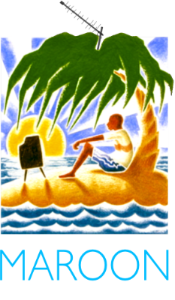As Oritsé Williams of JLS explores the lives of the young carers, Christopher Howse pains over what kind of future there is for them
By Christopher Howse – @BeardyHowse
Thursday 10th July 2014
When six-year-old Ty-Reese handed his mother a glass of water for her to take her pills, she said: “Thank you, baby.” He replied: “You’re welcome, Mummy.” After this formal little exchange, he went into the kitchen to load the washing machine, for he had already spent 18 months of his life helping to be a carer for his mother, who has kidney problems and arthritis, and is fitted with a pacemaker.
Officially there are 200,000 children who are classified as “carers”, based on the 2011 census, but Professor Saul Becker, a Nottingham sociologist, told the camera that a more accurate number is nearer 700,000, one in 12 of all children in the country.
He was asked about this by Oritsé Williams, best known as a member of the former boy-band JLS. The reason he was presenting Britain’s Youngest Carers (Channel 4) is that, from the age of 12, he cared for his own mother, Sonia, who has multiple sclerosis.
Williams wisely said, “I’m always suspicious of celebrity involvement” in such complex problems, and he had no illusion that a magic wand could be waved to save schoolchildren spending 40 hours or more caring for a parent on top of their studies. He provided a literal shoulder to cry on for more than one youngster in this short documentary, and repeated that one of the most troubling problems is their having no one to share their feelings with. Children are even bullied at school if they reveal their parents’ dependence.
One, Josh, aged 13, helps his mother and sister look after his terminally ill father. A serious youth, he also goes to Air Cadets, which he finds “takes your mind off it”; but he has told no one there of his commitment at home. “He has to slowly watch his father die,” Williams commented, “something which no one of any age should have to do, and not at 13.”
That sounds a sympathetic thing to say, but it can’t be true. Everyone has to see their parents die, slowly or quickly, unless they die first. Josh must tread a hard road, and one perhaps unnecessarily lonely, but, for all his hidden anguish, he seems to be doing it bravely. What’s the alternative?
One alternative is the possibility that little Ty-Reese’s mother fears: that, now he has a social worker allocated to him, he will, when she becomes even less able to look after herself, be “taken into care”. That, in our day, is a prospect as chilling as the workhouse once was.
Original Article: https://www.telegraph.co.uk/culture/tvandradio/tv-and-radio-reviews/10957667/Britains-Youngest-Carers-Channel-4-review-a-hard-road.html


